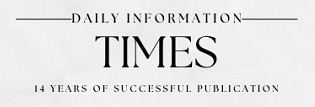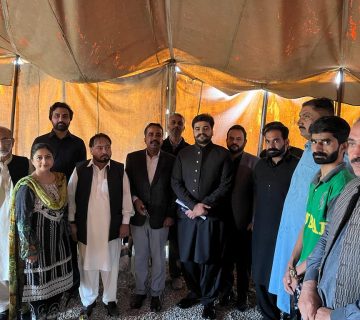ISLAMABAD, Apr 23 (APP): Imran Khan’s bid for snap elections has evolved into a constitutional crisis as uncertainty has arisen about the implementation of the order of the Supreme Court about the holding of early elections.
According to an article carried by the Bloomberg News, at the center of this is Chief Justice Umar Ata Bandial, who set election dates for the Punjab and Khyber Pakhtunkhwa provinces after Khan and his allies used their majorities to dissolve the assemblies and build momentum for an early national vote.
Government lawmakers then moved to pass a bill to clip the top judge’s powers on taking “suo-moto” notice — which means carrying out action on what the justice deems is in the interest of the public.
The bill is now in limbo after it was suspended last week by an eight-member top court panel, a week before it was expected to become law.
In another twist, Justice Bandial ordered the nation’s central bank to provide funds to the Election Commission to carry out the polls, after the government refused to make the finances available. Ministers have publicly criticized the court’s decision and said nationwide polls will be held in October.
The constitutional crisis adds to a raft of problems that have plagued the South Asian nation since Khan was ousted from power a year ago by Prime Minister Shehbaz Sharif and an alliance of 13 political parties. They have cited Khan’s economic and foreign policy mismanagement as key reasons for his ouster.
Sharif has resisted holding early elections, saying the country needs to focus on reviving an International Monetary Fund bailout package and avoiding a default.
Khan, on the other hand dodges police arrests for court cases involving terrorism and corruption charges.
Khan’s Pakistan Tehreek-e-Insaf party and allies used their combined majorities in Punjab and Khyber-Pakhtunkhwa to dissolve the legislatures in January, in an attempt to push for elections.
As the government appeared to delay the election process, Chief Justice Umar Ata Bandial intervened to hear the case himself along with a bench of judges. The five-member panel of justices directed President Arif Alvi, a member of Khan’s party, to announce a polling date which was set for April 9 for both provinces.
The government said there’s no money for local elections given the economic crisis and it was more important to focus on securing the IMF loan. The Election Commission of Pakistan postponed the polls to Oct. 8 citing funding shortages and rising terrorism.
The Supreme Court has been divided. Khan appealed the poll postponement and a nine-member bench was established to consider the matter. Two justices recused themselves, while four others dismissed the case.
Bandial, along with two other judges, ruled that polls should be carried out in Punjab on May 14. The government had demanded that a larger panel of justices hear the appeal, which Bandial declined to do.
The Shehbaz administration was ordered to provide 21 billion rupees ($72 million) to the election body by April 10, in order to carry out the polls. The government rejected the verdict saying it’s a minority view and referred the matter to parliament. A separate appeal on elections in Khyber Pakhtunkhwa is being heard at a provincial court.
It depends on a parliament that is controlled by Sharif’s coalition parties. Government lawmakers have passed a non-binding motion barring Sharif from releasing funds to the electoral watchdog, and from carrying out the order to hold local elections next month.
At the same time, based on the Supreme Court orders, the Sharif administration introduced a money bill seeking parliament’s approval on allocating funds for elections. But it was rejected by parliament’s standing committees.
Government officials such as Interior Minister Rana Sanaullah have hinted at imposing emergency laws. The government can invoke such laws, citing rising terrorism or an economic crisis as a means to justify delaying elections. The national vote has been delayed before, as recently as 2007, when then-Prime Minister Benazir Bhutto was assassinated.
Khan and his party are putting pressure on the Election Commission to follow the court order.
With national elections on the horizon, likely to be held in October, Khan is making attempts to improve his relationship with the establishment and the United States. He fell out with both after accusing them of collaborating to oust him from power – an allegation they have denied.




No comment